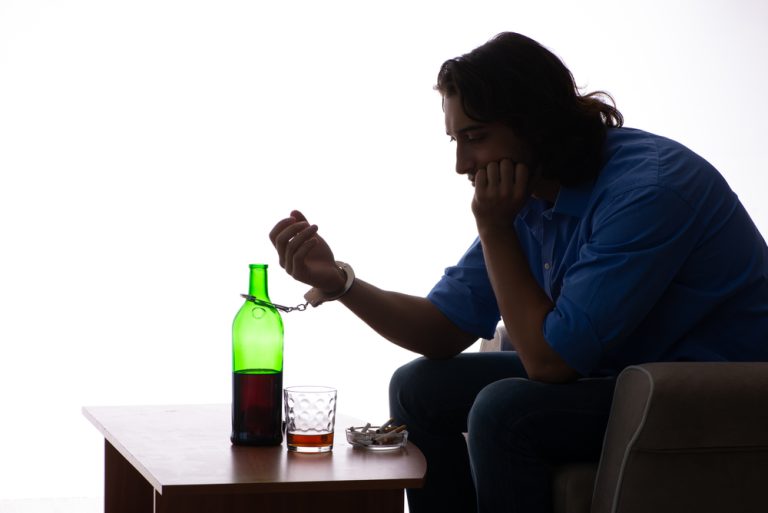Content
The most common mistake physicians make is assuming too soon that the patient is stable. Ask patients about attendance at AA meetings and about their relationships with their sponsors. Less than 20% of patients remain abstinent for a full year. Among patients who have been sober for 2 years, the relapse https://ecosoberhouse.com/ rate is 40%. Patients who have been sober for 5 years are likely to remain sober, but they are still at risk for relapse. Being overtired, overworked, or hungry is putting you at higher risk of relapse. Take care of yourself and find healthy alternatives to past habits that revolved around drinking.

I had a lot of very serious emotional problems that I would cover up through drinking. When I got to Pathfinders for treatment, they offered a great dual diagnosis program that helped me work on all of my issues simultaneously. If you actually make the decision to stop drinking, that alone is a huge feat. If you slip up and go back to it, at least you know you can stop again because you’ve done it before. Some people do it for their health and their overall well-being.
Things That Inevitably Happen to Your Personal Life When You Get Sober
Content is fact checked after it has been edited and before publication. Long-term sobriety is a relative term—it means different things to different people. But many people consider long-term sobriety to be sobriety that has lasted at least one year. Consider reaching out to a vocational rehabilitation counselor or career coach how to avoid drinking again after sobriety to help you update your resume, practice job interview skills, and locate jobs that match your skills and experience. But it is possible to take baby steps and get your finances in order. Just keep in mind that your improvements won’t happen overnight. Having a chaotic or disorganized lifestyle can also hinder your recovery.
Overall, gather as much information as you can about the program or provider before making a decision on treatment. If you know someone who has first-hand knowledge of the program, it may help to ask about his or her personal experience. Professionals in the alcohol treatment field offer advice on what to consider when choosing a treatment program. Ideally, health professionals would be able to identify which AUD treatment is most effective for each person. NIAAA and other organizations are conducting research to identify genes and other factors that can predict how well someone will respond to a particular treatment. These advances could optimize how treatment decisions are made in the future. Many health professionals can play a role in treatment.
Other Signs of Relapse
If someone knows their triggers, they can better avoid them and reduce their risk of a relapse. Whatever the reason, there are serious consequences when someone with AUD drinks. The justifications and excuses are harmful and will soon lead the individual to drink in the manner with which he or she is most familiar.
What are the 10 guiding principles of recovery?
- Self Directed.
- Self-Centered.
- Empowering.
- Full-Picture.
- Realistic.
- Strengths-Based.
- Peer Support.
- Respect.
Haynes revealed that he hit rock bottom when he locked himself in a hotel room during a seven-day bender and “ended up in psych hold.” He completed a four-month treatment program soon after. Again, professionally I excelled, but socially, I was completely isolated. My wife had just delivered our fourth child, and I was distant from my whole family.
Relapse Prevention Treatment
Call us for a free phone consultation and insurance verification. If you’re wondering what to say to someone who relapsed or what to do when someone relapses, read these 5 important tips.
- Even if you can control your drinking for a little while, it’s an addiction that’s designed to get worse and worse.
- Whether you choose to tackle your alcohol addiction by going to rehab, getting therapy, or taking a self-directed treatment approach, support is essential.
- Buddy T is an anonymous writer and founding member of the Online Al-Anon Outreach Committee with decades of experience writing about alcoholism.
- You have every reason to celebrate when you hit a milestone.
Within a short period of time, harassing the fourth roommate with obnoxious merriment, I was able to convince that non-partying roommate to swap rooms. I structured my class schedule so as to not interfere with my alcohol and drug use, incorporating a large break between morning and late afternoon classes in which I could get all my studying done. I again excelled in school, graduating with a 4.0 GPA and several individual honors. I had completed all except two course credits for my degree within three years and spent my final year engaged in analytical chemistry research for the last two credits. I was offered a scholarship opportunity to go on to PhD studies in chemistry, but chose to continue on to med school instead.